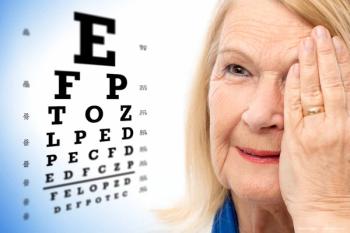
AMD: What newly diagnosed patients need to know
Numerous websites are designed to raise awareness about age-related macular degeneration (AMD), some sponsored by the National Eye Institute (NEI), others by disease-specific foundations, and others by industry. Here is a basic overview of the websites and what can be found on them.
Numerous websites are designed to raise awareness about age-related macular degeneration (AMD), some sponsored by the National Eye Institute (NEI), others by disease-specific foundations, and others by industry. Here is a basic overview of the websites and what can be found on them.
Facts About AMD
Most patients will not know a lot about AMD prior to their diagnosis, and the National Eye Institute has developed a
- What is AMD? In layman’s terms, the site notes that AMD advances so slowly that vision loss does not occur for a long time. In others, the disease progresses faster and may lead to a loss of vision in one or both eyes. As AMD progresses, a blurred area near the center of vision is a common symptom. Over time, the blurred area may grow larger or you may develop blank spots in your central vision. Objects also may not appear to be as bright as they used to be.
- What are the symptoms of AMD? The NEI’s plain-language summary notes that as AMD progresses, people will see a blurry area near the center of their vision, and that objects may seem less bright than they usually had been, or that straight lines may begin to look wavy.
- Who is at risk? Besides age, the NEI notes smoking, race, family history and genetics are all risk factors. (The NEI does alert patients that the American Academy of Ophthalmology does not recommend routine genetic testing for AMD, and insurance generally does not cover genetic testing for this disease.)
- How will an eye care professional check for AMD? The NEI notes that eye doctors can check for AMD as part of a comprehensive dilated eye exam, and may also recommend an optical coherence tomography exam.
The NEI also offers eye care professionals
Personalized Cause
AMD/Low Vision Awareness have been coupled together in
According to the website, “these disorders have an impact on people of all ages, yet few are aware of AMD and low vision symptoms, risk factors, and the way to manage these disorders. In the United States, the most common causes of low vision are AMD, cataracts, glaucoma and diabetic retinopathy. AMD is the leading cause of vision loss affecting more than 15 million adults aged 50 and up.”
Personalized Cause supports AMD/Low Vision Awareness Month with custom awareness ribbons, wristbands, and fabric ribbons.
Sight Matters
Bausch + Lomb’s
Membership to the Sight Matters is free, and members “receive exclusive coupons for PreserVision eye vitamins that can save you over $60 a year.” (Bausch + Lomb markets the PreserVision brand of eye vitamins.)
Among the advice found on this site: creating an “AMD Action Plan” that includes answering a few questions so the site can help build a personal plan; what living with AMD means and includes insights into the best types of sunglasses to wear to protect eyes from blue light; how to use the printable Amsler grid to increase self-monitoring; and questions to ask eyecare specialists. The site encourages people to join support groups and provides links.
Other useful websites
Although February is deemed “AMD Awareness Month,” several organizations work year-round to provide patients with general information about the disease and serve as a place where patient stories can be readily shared. Among these:
Newsletter
Keep your retina practice on the forefront—subscribe for expert analysis and emerging trends in retinal disease management.




